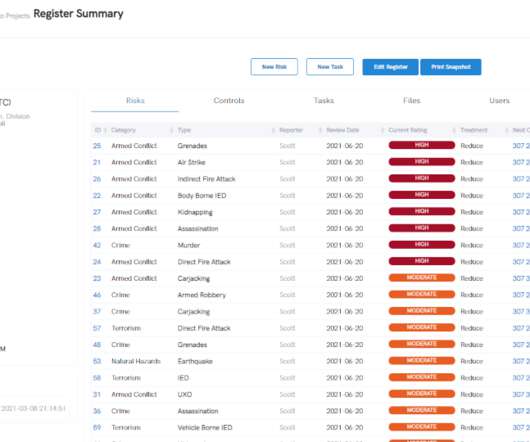A Proposed Strategy to Advocate for Improved Civil Protection in the United Kingdom
Emergency Planning
MAY 6, 2024
The lessons of the Covid-19 pandemic, alas largely negative, show that a good civilian system designed to protect the public against major hazards and threats can save thousands of lives and billions in losses and wasted expenditure. Non-seasonal influenza retains the potential to cause a pandemic on the level of that of 1918-1920.












Let's personalize your content